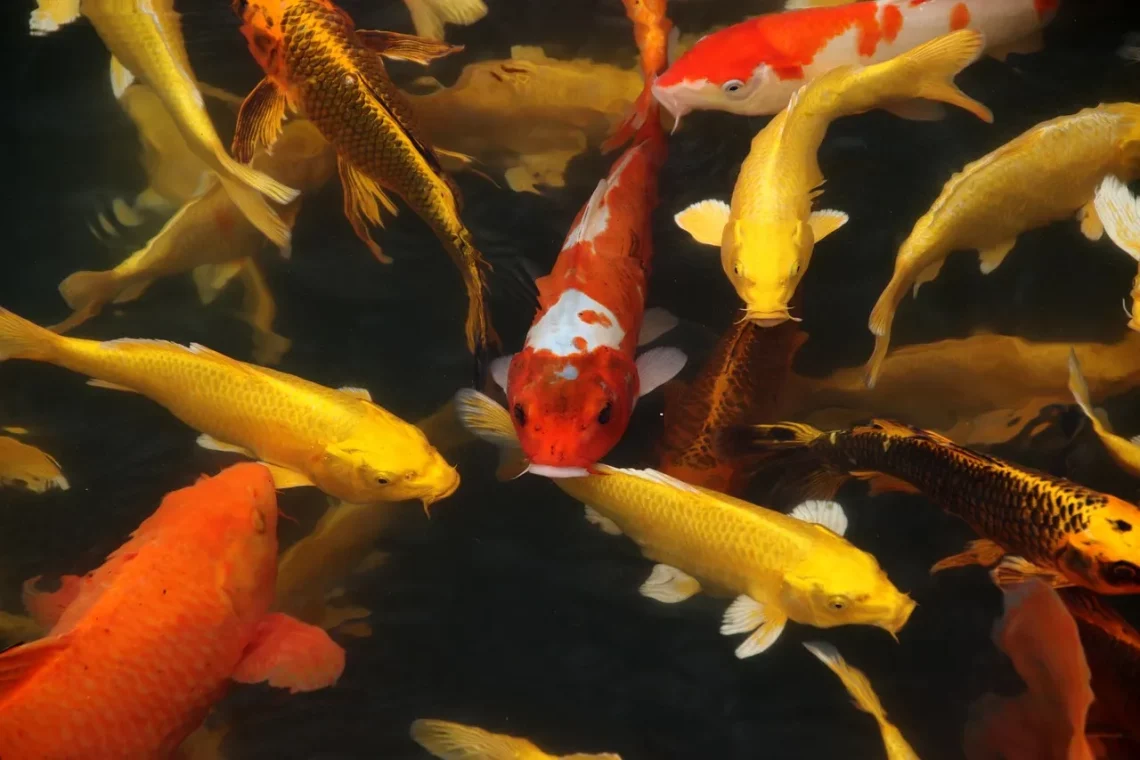
Understanding Cloudy Eye Fish: Causes and Care Tips
Cloudy eye fish is a condition that can affect various species of fish, often signaling underlying health issues that may need immediate attention. This phenomenon is characterized by a cloudy or opaque appearance of the fish’s eyes, which can be alarming for both novice and experienced aquarists. Understanding the reasons behind cloudy eyes in fish is crucial for maintaining the health of your aquarium inhabitants. Factors contributing to this condition can range from environmental stressors to infections and nutritional deficiencies.
Aquarium enthusiasts often find themselves worried when they notice changes in their fish’s appearance, particularly in their eyes. The eyes of fish serve not only as essential sensory organs but also as indicators of overall health. Consequently, when the eyes become cloudy, it can signify a variety of issues that may require corrective measures. Being proactive in identifying these problems can lead to better outcomes for your fish, ensuring they lead long and healthy lives.
In this article, we will delve deeper into the causes of cloudy eyes in fish, explore effective care tips, and highlight preventive measures to keep your aquatic friends thriving. By understanding this condition and knowing how to address it, fish owners can enhance the quality of life for their pets and maintain a vibrant aquarium ecosystem.
Common Causes of Cloudy Eyes in Fish
Several factors can lead to cloudy eyes in fish, each requiring careful examination to diagnose correctly. One of the most prevalent causes is poor water quality. High levels of ammonia, nitrite, or nitrate can cause stress and irritate a fish’s eyes, leading to cloudiness. Regular water testing is essential to ensure that your aquarium parameters are within safe limits.
In addition to water quality, injuries can also play a significant role. Fish may sustain injuries from tank decorations, aggressive tank mates, or even during transport. Such injuries can lead to infections or inflammation, resulting in cloudy eyes. Observing the behavior and interactions of your fish can help identify potential hazards in their environment.
Another critical cause is the presence of pathogens. Bacterial, viral, or fungal infections can manifest as cloudy eyes, often accompanied by other symptoms such as lethargy, loss of appetite, or abnormal swimming patterns. In such cases, a proper diagnosis from an aquatic veterinarian is advisable to determine the appropriate treatment.
Moreover, nutritional deficiencies can contribute to eye health issues. A lack of essential vitamins and minerals can weaken a fish’s immune system, making them more susceptible to infections. Ensuring a balanced diet that includes high-quality fish food enriched with necessary nutrients is vital for the overall well-being of your fish.
Lastly, stress from environmental changes, such as sudden temperature fluctuations or overcrowding, can lead to cloudy eyes. Creating a stable and suitable habitat for your fish is crucial in preventing stress-related health issues.
Effective Care Tips for Fish with Cloudy Eyes
Caring for fish with cloudy eyes involves several steps aimed at improving their health and well-being. First and foremost, it is essential to assess the water quality in your aquarium. Regular water testing should be a part of your maintenance routine, checking for ammonia, nitrite, nitrate, pH, and hardness levels. If any parameters are off, perform partial water changes and consider using water conditioners to help stabilize the environment.
If the cloudy eyes are due to an injury or infection, observe your fish closely for any additional symptoms. If you notice signs of distress, such as rapid gill movement or unusual swimming patterns, it may be time to isolate the affected fish to prevent the spread of any potential disease. Quarantine tanks can provide a safe space for treatment and recovery.
For infections, medicated treatments are often necessary. Over-the-counter medications designed for specific types of infections can be effective. However, it is crucial to follow the instructions carefully and consult with an aquatic veterinarian if you are uncertain. They can provide guidance on the best treatment options based on the specific symptoms your fish are exhibiting.
In addition to treating existing issues, preventive measures are equally important. Ensuring that your fish receive a balanced diet can help bolster their immune systems. High-quality fish flakes, pellets, or frozen food that contain essential vitamins and minerals will support their overall health.
Maintaining a stress-free environment is also vital. Avoid overcrowding your aquarium and ensure that tank mates are compatible. Providing hiding places and appropriate tank decorations can help fish feel secure and reduce stress levels.
Preventing Cloudy Eyes in Your Aquarium
Preventing cloudy eyes starts with creating a healthy and stable environment for your fish. Regular maintenance of your aquarium is paramount. This includes consistent water changes, cleaning the substrate, and ensuring that the filtration system is functioning correctly. A well-maintained tank will help minimize the risk of poor water quality, which is a leading cause of cloudy eyes.
Another preventive measure is to introduce new fish to your aquarium slowly. Quarantine newly purchased fish for at least two weeks before adding them to your main tank. This practice helps prevent the introduction of diseases that could compromise the health of your existing fish. During the quarantine period, monitor the new fish for any signs of illness.
When selecting tank mates, consider the temperament and size of the fish. Aggressive species can cause stress and injuries, leading to health problems. Aim for a balanced community tank with compatible species to create a harmonious environment.
Additionally, provide a varied diet that meets the nutritional needs of your fish. Research the dietary requirements of different species and ensure you offer a mix of high-quality foods. This will help support their immune systems and prevent deficiencies that could lead to health issues.
Lastly, pay attention to the overall environment of your aquarium. Maintain stable water temperatures and avoid drastic changes. Regularly check equipment such as heaters and filters to ensure they are functioning correctly. A stable environment will help prevent stress, which is a common trigger for cloudy eyes.
In conclusion, while cloudy eyes in fish can be alarming, understanding the causes and implementing effective care strategies can make a significant difference in their health. Remember that this article is not a substitute for professional medical advice. If you notice persistent symptoms or health issues in your fish, consult a qualified veterinarian who specializes in aquatic animals for proper diagnosis and treatment.




